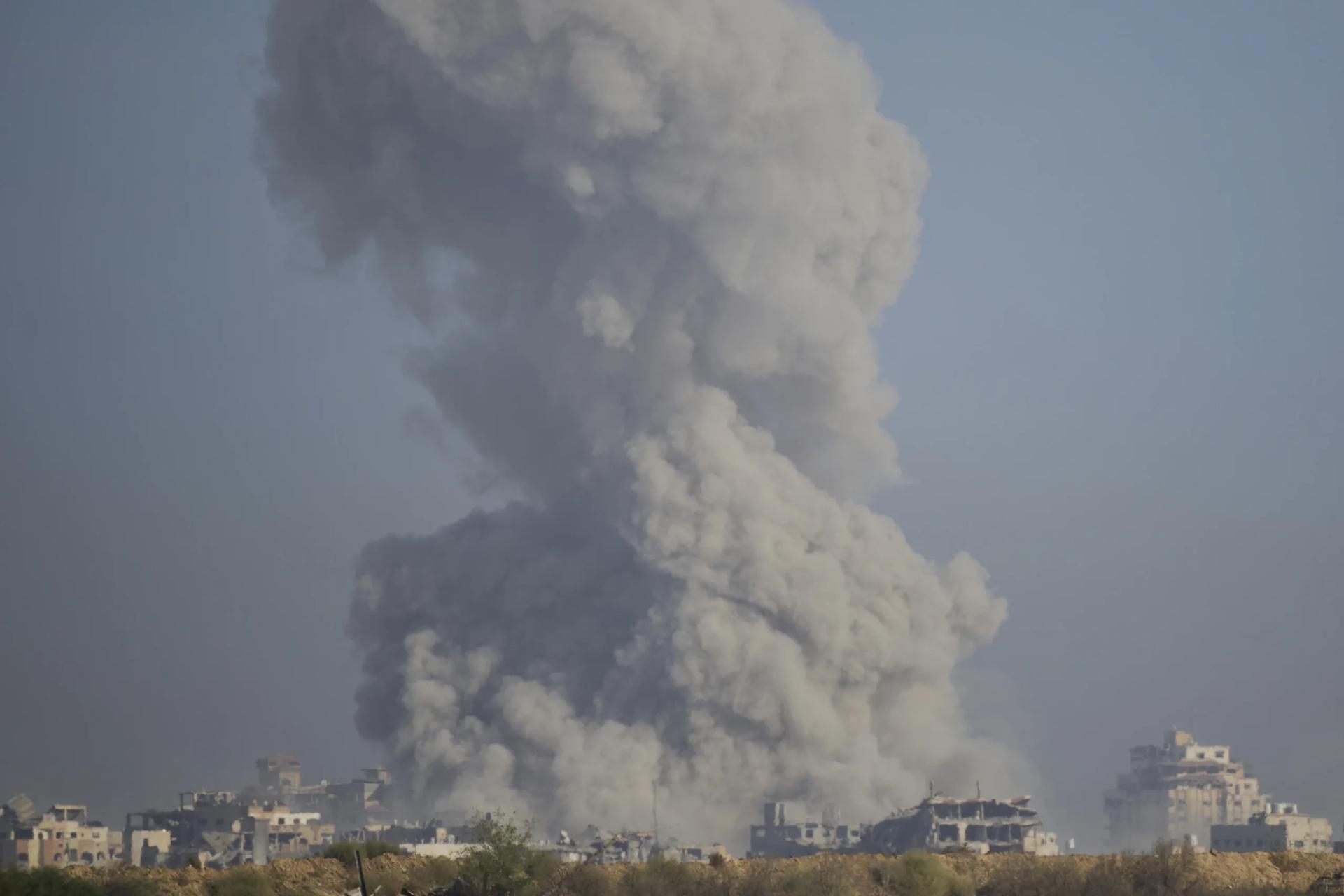On Sunday, Pope Leo XIV greeted representatives of various Catholic associations engaged in works of solidarity with the people of the Gaza Strip.
“Dear friends, I appreciate your initiative and many others throughout the Church that express closeness to our brothers and sisters who are suffering in that tormented land,” the pontiff said after reciting his Sunday Angelus in St. Peter’s Square.
“Together with you and with the Pastors of the Churches in the Holy Land, I repeat: There is no future based on violence, forced exile, or revenge. The people need peace; those who truly love them work for peace,” Leo said.
The Gaza War broke out following an Oct. 7, 2023, surprise attack by Hamas militants that left 1,200 Israelis dead and more than 250 taken as hostages.
Israel immediately launched a retaliatory offensive in Gaza to oust Hamas from leadership, with the subsequent conflict resulting in the deaths of an estimated 70,000 people in Gaza, according to Palestinian estimates.
Israel has increased its military presence in Gaza, and has ordered the evacuation of Gaza City, which the region’s only Catholic parish has refused to abandon.
The conflict has increased calls for a lasting two-state solution in the Holy Land, and Britain, Canada and Australia formally recognized a Palestinian state on Sunday.
RELATED: British MP says Catholic Church has role to play for Palestine
The Vatican has long supported a Two-State solution. On July 30, Permanent Observer of the Holy See, Archbishop Gabriele Caccia, said it is the “only viable and equitable path toward a just and lasting peace” in the Holy Land.
“To support this vision, the Holy See has already taken meaningful steps. It formally recognized the State of Israel through the 1993 Fundamental Agreement and the State of Palestine through the 2015 Comprehensive Agreement. It continues to uphold the inalienable rights of the Palestinian people, including the right to self-determination. The Holy See supports their legitimate aspirations to live in freedom, security, and dignity within an independent and sovereign State,” he said in New York.
The archbishop then turned to the situation in Jerusalem, which he called “a city of universal religious and cultural significance.”
“It is sacred to Christians, Jews and Muslims alike. Therefore, it requires a status that transcends political divisions and ensures the preservation of its unique identity,” he said.
RELATED: At United Nations, Vatican calls for Two-State Solution in Israeli-Palestinian conflict
In his conversation with Crux’s Elise Ann Allen in July, Pope Leo said the situation in the Holy Land is difficult.
“Even with some pressure, I don’t know how great it’s been behind the scenes, but even from the United States, which is obviously the most significant third party that can place pressure on Israel, in this case,” the pontiff said.
“Even with some very clear statements being made by the United States government, recently by President [Donald] Trump, there has not been a clear response in terms of finding effective ways to alleviate the suffering of the people, the innocent people in Gaza, and that is obviously of great concern,” he told Allen.
RELATED: Pope Leo speaks to Crux’s Elise Ann Allen about Gaza
“It’s going to be very difficult because some of the people, especially children, when people go into not only deprivation but of actual starvation, just to receive food doesn’t immediately solve the problem. They’re going to need a lot of help, medical assistance as well as humanitarian aid, to really turn that situation around, and right now it still looks very, very grave,” Leo continued.
He implicitly referred to the fact his predecessor Pope Francis called for the investigation of accusations that Israel is committing “genocide” in Gaza.
“The word genocide is being thrown around more and more. Officially, the Holy See does not believe that we can make any declaration at this time about that. There’s a very technical definition about what genocide might be, but more and more people are raising the issue, including two human rights groups in Israel have made that statement,” the pope told Elise.
“It’s just so horrible to see the images that we see on television, hopefully something will turn this around. Hopefully we won’t grow numb,” he said.
“That’s sort of a human response because you can only stand so much pain, so the numbness is a way of just deadening the nerves and saying, ‘I can’t take anymore’, so it stops. I think certainly human beings, and as a Christian response, we can’t grow numb, and we can’t ignore this. Somehow, we have to continue to push, to try and make a change there,” Leo said.
Follow Charles Collins on X: @CharlesinRome











